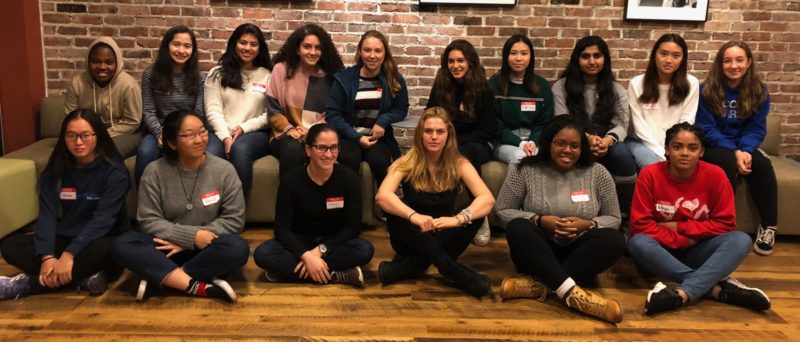
Thanks to generous funding from the R Consortium, Forwards has offered a series of workshops around the world to support the development of coding skills and to increase the participation of women in the R community. In the last year and a half, more than 10 workshops have engaged more than 100 high school students and women in Australia, New Zealand, Europe and the USA. Information about our series of workshops for women and girls can be found on the Edu section of the Forwards website.
Here we round up some of the highlights.
Auckland
Forwards teamed up with the Auckland University Department of Statistics to offer two R workshops in December 2017, one day for women on package development and one day for girls on web app development. Hadley Wickham and Jenny Bryan developed course materials for the package development workshop, while Di Cook developed the materials for the girls’ workshop. Both sets of materials were released under Creative Commons licenses so that they could be reused and adapted for future workshops.
See the material for the girls’ workshop and two of the apps developed by the girls to explore New Zealand’s PISA standardised scores: Booknerd’s App and Zoe’s App.
Budapest
Using the material developed for Auckland, Isabella Gollini and Heather Turner ran a package development workshop for women at eRum 2018. Thanks to support from the R Consortium and the eRum conference, eight women were funded to attend the workshop and given free conference registration, with representatives from Denmark, Georgia, Germany, India, Sweden and the UK. Other eRum participants were also able to attend.
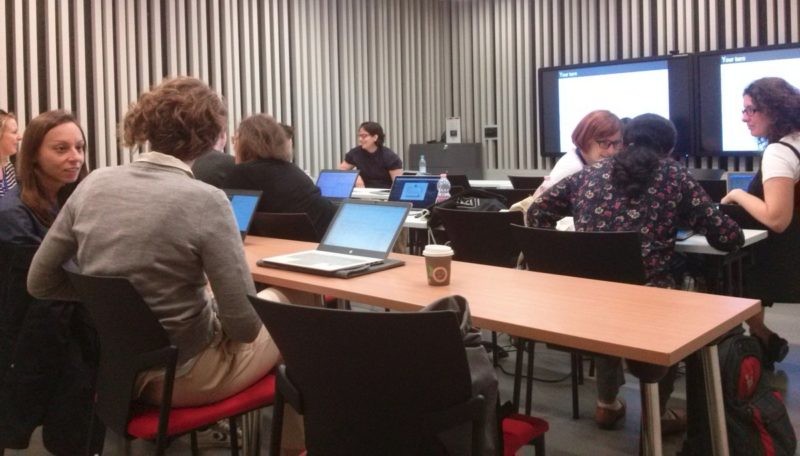
New York City
Emily Dodwell and Joyce Robbins taught the first Forwards high school girls workshop in the United States in October 2018 at AT&T in New York City. Sixteen motivated, curious, and dedicated students worked diligently throughout a morning session to tackle an introduction to R, plots in ggplot2, Markdown, and manipulating data with dplyr. Breakout groups over a lunch of pizza and salad discussed careers in data science; volunteers shared their career trajectories, and students asked questions and shared their experiences in high school STEM courses and extracurricular activities.
The six-hour workshop culminated in an afternoon hackathon, the theme of which was transportation in and around NYC. Each pair of students chose one of three publicly available datasets—NYC Flights, Taxis, and CitiBike—to explore using the R skills they learned earlier in the day. They then gave a five-minute presentation highlighting visualizations they created that captured interesting behavior or answered questions they formulated.
Many thanks to the volunteers from AT&T Labs Research, Cheryl Flynn and Ritwik Mitra, and from R-Ladies NYC, Soumya Kalra and Angeline Protacio.
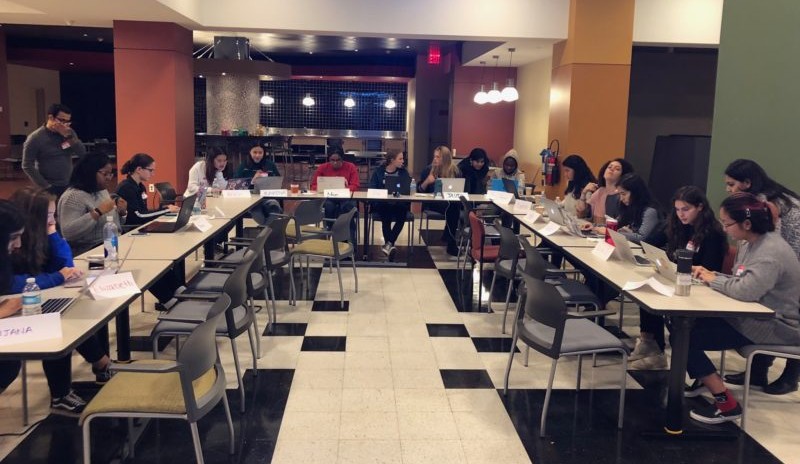
Chicago
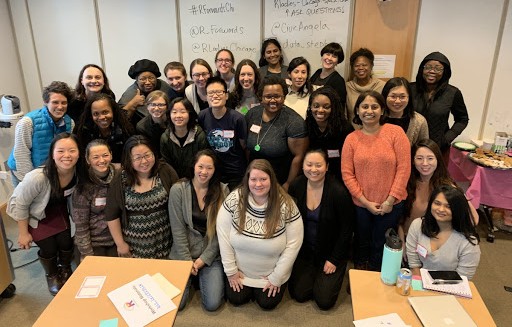
Angela Li and Stephanie Kirmer, both of R-Ladies Chicago, organized a women’s package workshop in February 2019 for 30 women at the Center for Spatial Data Science in Chicago. This marked the first time an R-Ladies group had run the full package development workshop. The workshop brought women from 11 states in the US to freezing-cold Chicago to learn how to develop their first package. The workshop was preceded by an R-Ladies get-together with an R-Ladies purple cake, where workshop participants from out-of-town were able to get to know each other.
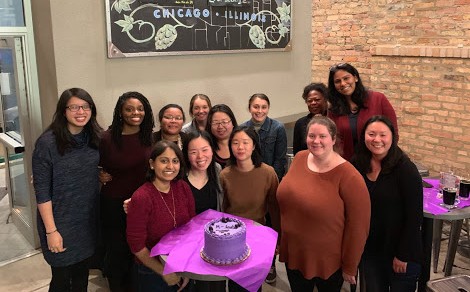
Pre and post-survey results from the workshop can be found online (thank you, Stephanie, for putting this together!). For a more in-depth look at the event, Josephine Lukito and Florencia Mangini both wrote fantastic recaps of the workshop. You can also find tweets from the event under the hashtag #RForwardsChi on Twitter.
Thanks to the R Consortium, funding was provided for 9 women from California, Tennessee, New York, Wisconsin, and more to attend this workshop. Thanks also to Katherine Simeon, Ola Giwa, and Nichole Burke for being helpers at this event.
Brisbane
Forwards teamed up with ACEMS to organise the Brisbane Coding Workshop for Girls held at River City Labs (https://www.rivercitylabs.net) in March 2019. There were approximately 10 girls and 5 helpers. The girls worked on instructional material to get up and running with R and the tidyverse (https://ebsmonash.shinyapps.io/sunny_tutorial/) in the morning. After a pizza lunch, the girls experimented with developing their own shiny app. A theme for the afternoon was “break it, fix it, break it, fix it, …” to encourage experimenting and trying new things. The girls used data from the Atlas of Living Australia, on wildlife sightings around Brisbane, as the basis for the app. There is an R package to interface with this extraordinary data resource. For examples of the apps developed see Claudia’s App and Rachel’s App.
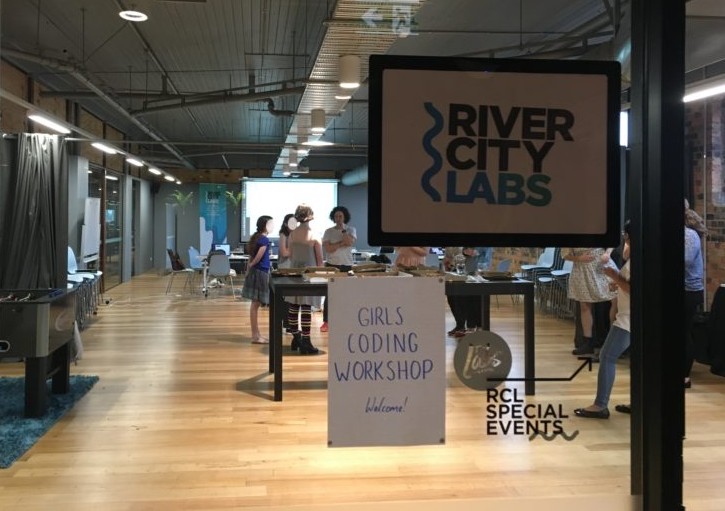
Resources
Materials for Forwards workshops can be found in our workshops repository. Additional materials can be found in the teaching_examples repository or linked from our Education page. All Forwards workshop materials are licensed with a Creative Commons license to encourage reuse by the community - please check the exact license on the material, in some cases, there is a restriction to non-commercial use.
If you are interested in organizing a workshop of your own, please take a look at the Template Forwards Workshop Google Drive for materials you can use to coordinate logistics for your workshop! This was put together by the Chicago workshop organizers and is something the teaching team plan to build on to support workshop organizers.